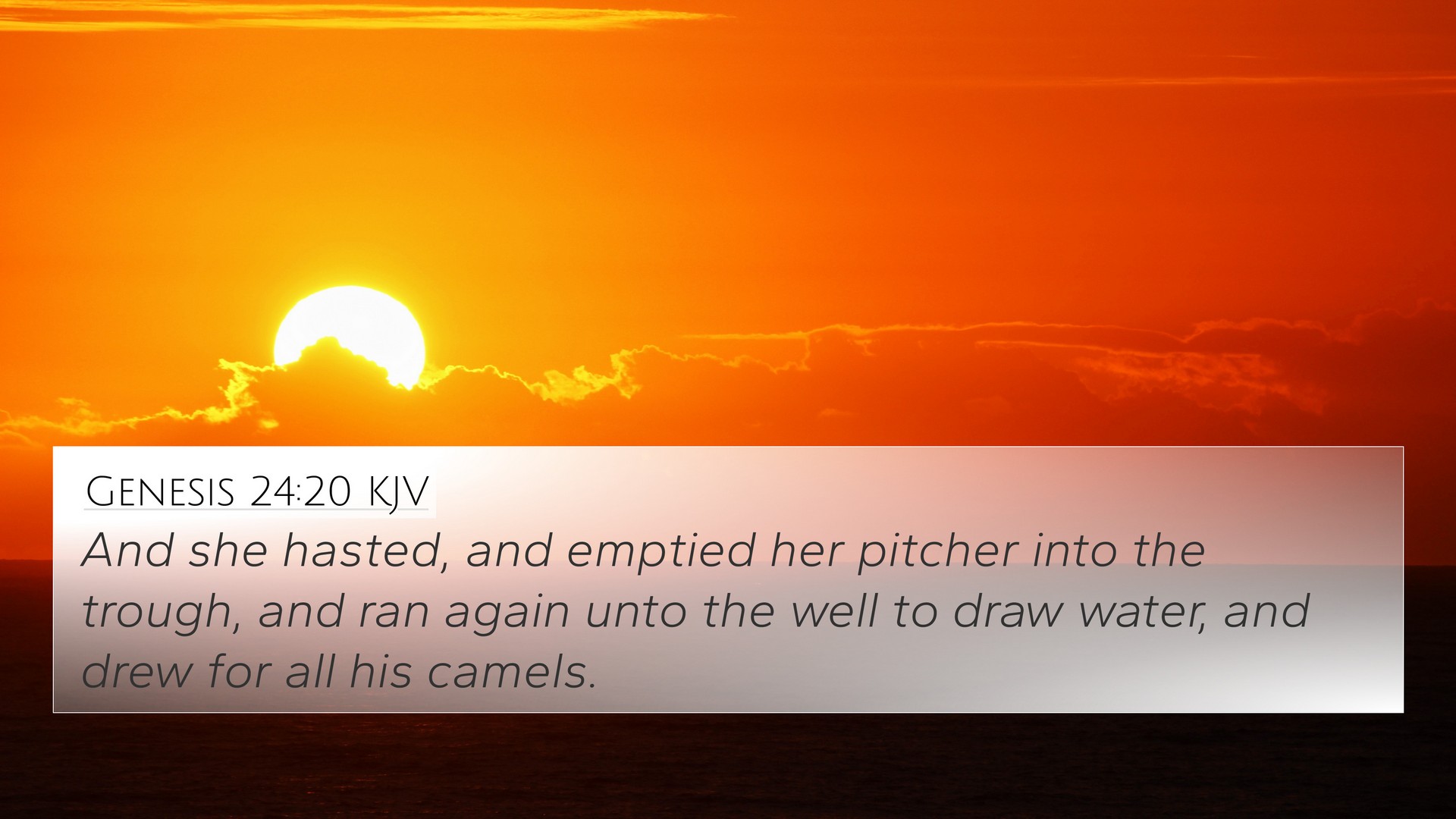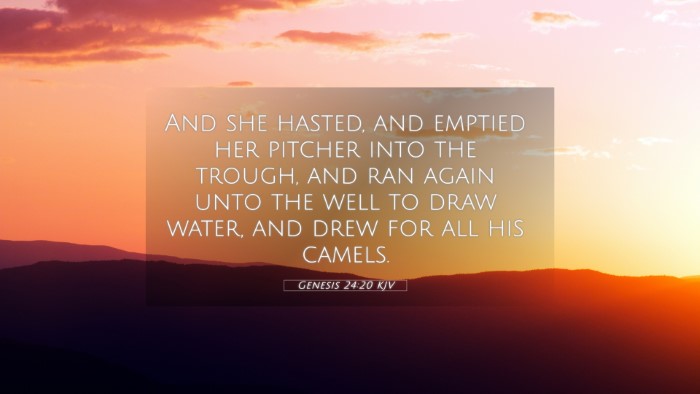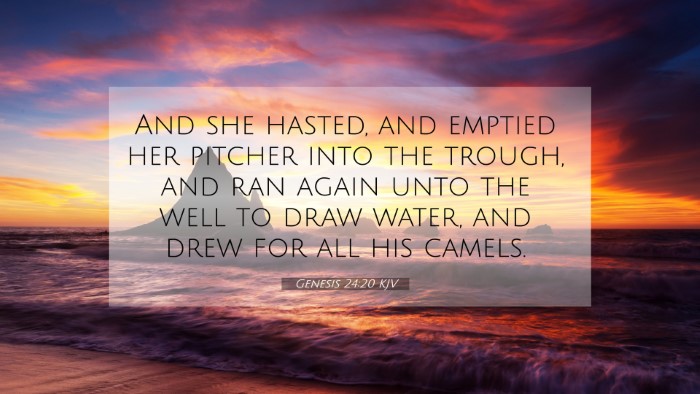Understanding Genesis 24:20
Genesis 24:20 states: "So she hurried and emptied her jar into the trough and ran back to the well to draw more water, and she drew enough for all his camels." This verse captures a moment of action that speaks volumes about the character and faithfulness of Rebekah. Let us explore the meaning of this verse through insights gleaned from esteemed public domain commentaries.
Commentary Insights
The importance of Genesis 24:20 lies not just in the act of drawing water but in its broader theological implications.
- Matthew Henry: Henry emphasizes Rebekah's eagerness and willingness to serve selflessly. Her immediate response to the servant's request indicates not only her character but also her understanding of hospitality, a significant virtue in the culture of the time.
- Albert Barnes: Barnes highlights the significance of Rebekah's actions as a demonstration of kindness and diligence. He notes that her effort reveals her readiness to fulfill God's plan as she unwittingly participates in the unfolding of God's promise to Abraham regarding his lineage.
- Adam Clarke: Clarke draws attention to the miraculous timing of Rebekah's arrival at the well just when Abraham's servant needed her. This divine orchestration serves as a reminder of how God guides events and uses individuals in fulfilling His covenant. He also notes that the act of watering the camels illustrates Rebekah's commitment and hard work.
Spiritual and Theological Themes
This verse serves as a lesson in various spiritual themes that resonate throughout scripture:
- Hospitality: Rebekah’s willingness to serve the needs of the servant and his camels showcases biblical hospitality, which is a recurring theme in both Old and New Testaments.
- Divine Providence: The event illustrates how God orchestrates circumstances and individuals in accordance with His divine plan.
- Faith and Obedience: Rebekah’s promptness reflects a faithful disposition, aligning with God’s expectations from His people.
Cross-References to Genesis 24:20
To enrich our understanding of this verse, it is beneficial to examine biblical texts that are thematically connected or provide contextual support:
- Genesis 24:14: This verse complements Rebekah's actions as it establishes the criteria for the right woman for Isaac, underscoring the significance of her character in the unfolding narrative.
- Genesis 18:3-5: Abraham’s hospitality towards the angels sets a precedent for similar virtues seen in Rebekah.
- Genesis 19:1: The hospitality of Lot offers additional context on the importance of receiving strangers, a theme that resonates with Rebekah's character.
- Exodus 2:16-20: Moses’ encounter with Zipporah at the well reflects similar themes of water drawing and serving, demonstrating a biblical motif of connection through well-scenes.
- Matthew 25:34-40: In the New Testament, serving others is highlighted as a form of service to Christ, linking Rebekah's deeds to Christian teachings about charity and kindness.
- Philippians 2:4: This verse encourages believers to look out for the interests of others, resonating with Rebekah's selfless actions.
- John 4:7-10: The story of Jesus and the Samaritan woman at the well also holds similarities in themes associated with service and water, linking New Testament imagery to Old Testament scriptures.
- Proverbs 31:20: The virtuous woman described in Proverbs provides traits that echo Rebekah's willingness to care for others.
Conclusion
Genesis 24:20 illustrates the act of service through Rebekah’s character, revealing essential truths about faithfulness, divine providence, and hospitality. These timeless themes continue to resonate within the biblical narrative and are punctuated by numerous connections found throughout scripture.
By employing cross-referencing Bible study methods, readers can uncover deeper insights and develop a more comprehensive understanding of the Bible's interconnectedness. Such tools for Bible cross-referencing can enrich one's spiritual life and provide a clearer view of God’s overarching narrative throughout Scriptural history. As one delves into the resources available for Bible cross-referencing, they will find it essential to identify connections between the Old and New Testament, engage with scriptural themes, and prepare informed studies or sermons based on these illuminating insights.


